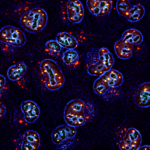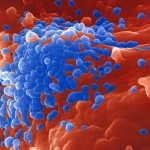Link to Pubmed [PMID] – 20523896
PLoS Pathog. 2010 May;6(5):e1000928
DNA viruses, retroviruses and hepadnaviruses, such as hepatitis B virus (HBV), are vulnerable to genetic editing of single stranded DNA by host cell APOBEC3 (A3) cytidine deaminases. At least three A3 genes are up regulated by interferon-alpha in human hepatocytes while ectopic expression of activation induced deaminase (AICDA), an A3 paralog, has been noted in a variety of chronic inflammatory syndromes including hepatitis C virus infection. Yet virtually all studies of HBV editing have confined themselves to analyses of virions from culture supernatants or serum where the frequency of edited genomes is generally low (HBV>alcoholic cirrhosis. A3C and A3D were up regulated for all groups while the interferon inducible A3G was over expressed in virus associated cirrhosis, as was AICDA in approximately 50% of these HBV/HCV samples. While AICDA can indeed edit HBV DNA ex vivo, A3G is the dominant deaminase in vivo with up to 35% of HBV genomes being edited. Despite these highly deleterious mutant spectra, a small fraction of genomes survive and contribute to loss of HBeAg antigenemia and possibly HBsAg immune escape. In conclusion, the cytokine storm associated with chronic inflammatory responses to HBV and HCV clearly up regulates a number of A3 genes with A3G clearly being a major restriction factor for HBV. Although the mutant spectrum resulting from A3 editing is highly deleterious, a very small part, notably the lightly edited genomes, might help the virus evolve and even escape immune responses.




